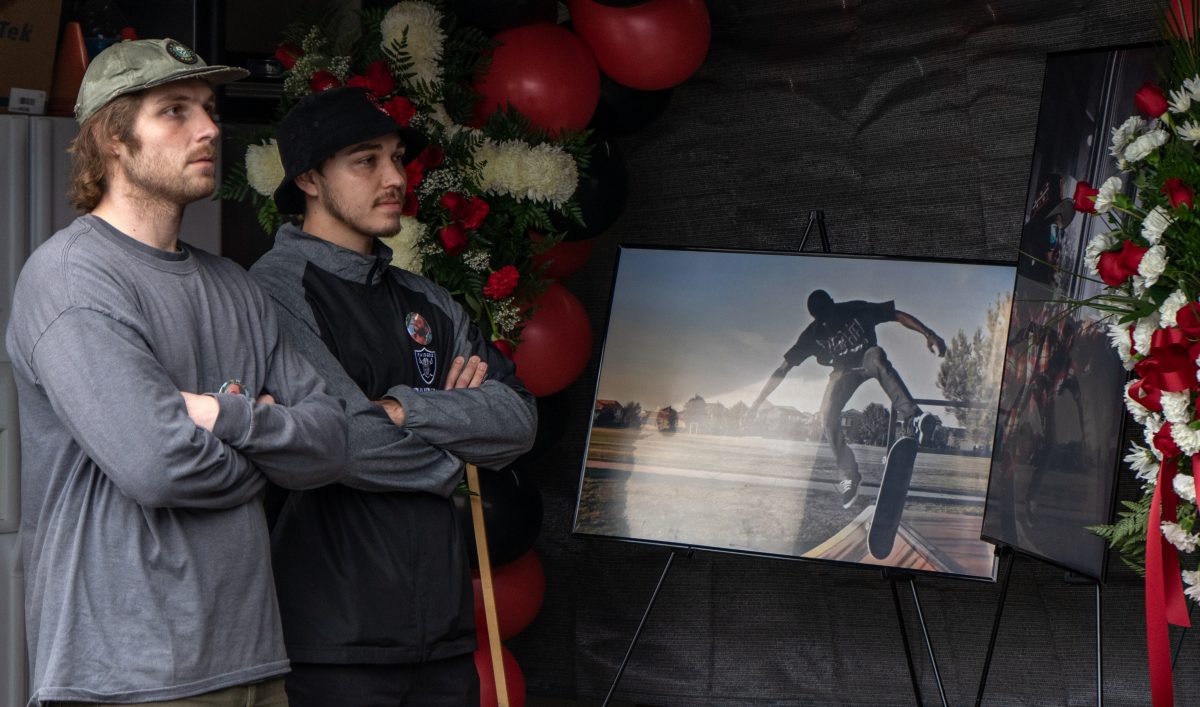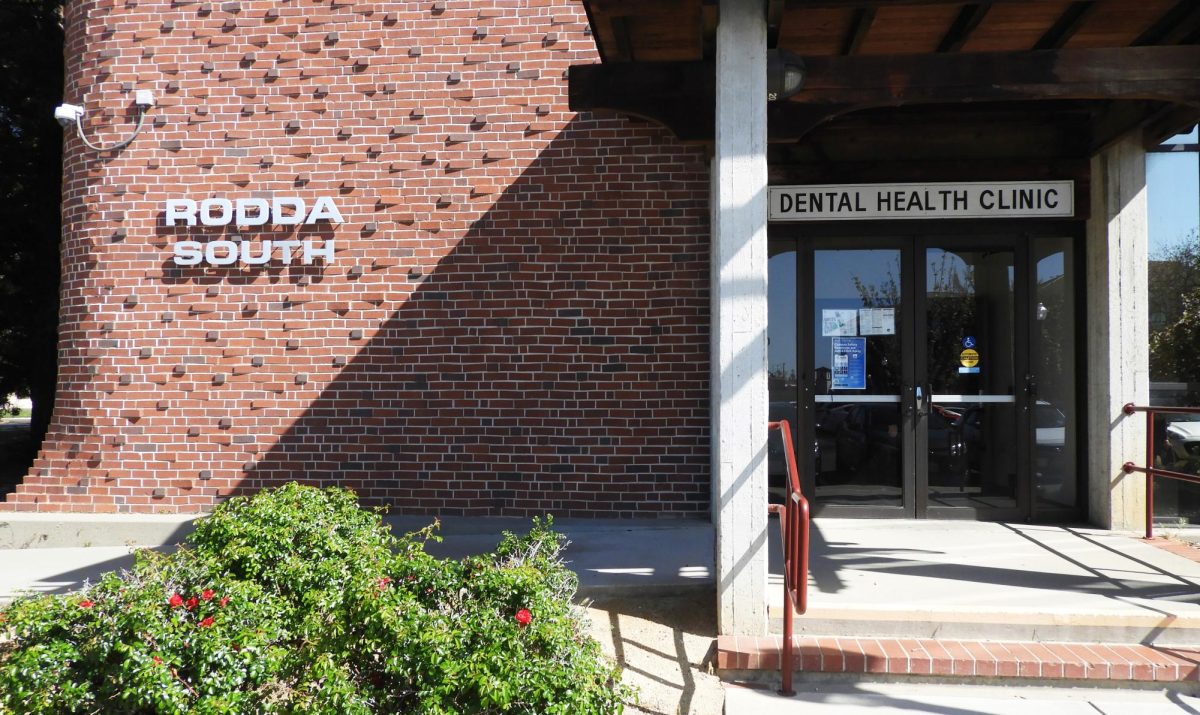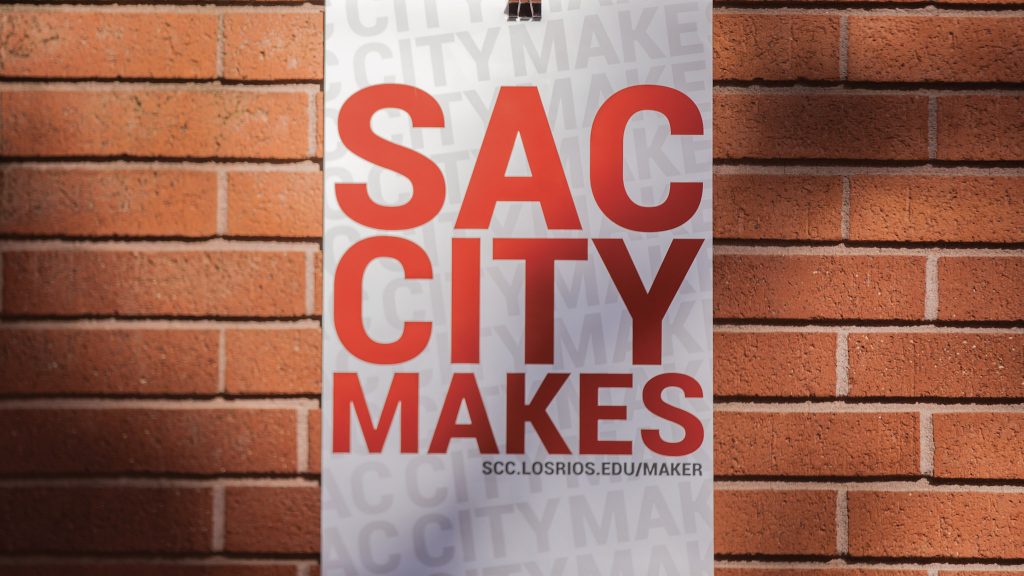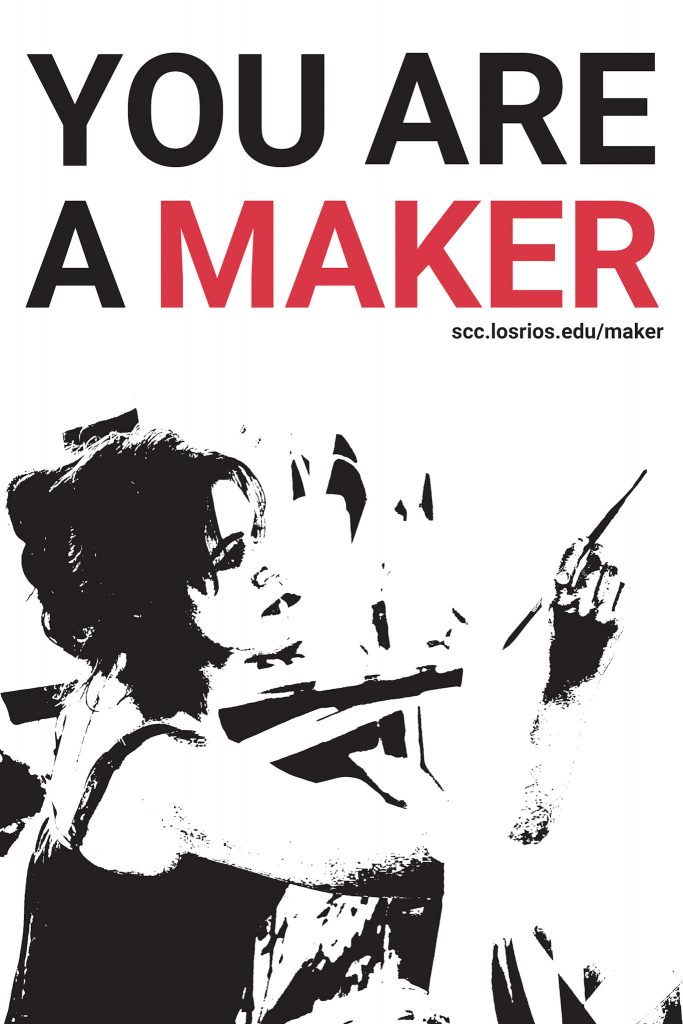Heather Roegiers
Staff Writer
kroegiers.express@gmail.com
City College has received a $20,000 mini grant to design a makerspace, a creative hands-on lab for many disciplines on campus that mimics the energy and collaboration of high-tech companies.
The grant will help a group of campus professors, staff and students begin to plan, organize, and educate the public about the makerspace, as well as shop for the right space for the lab. California community colleges are aiming toward sprouting a network of makerspaces through the CCC Maker Project and the California Community College Chancellor’s Office, which awarded the grant to City College.
Modeled after hacker spaces like Hacker Lab in Midtown, Sacramento and Rocklin, makerspaces are open, community-operated labs that provide access to machinery and equipment–ranging from pottery kilns to 3-D printers–incorporating aspects of machine shops, workshops and studios.
“It’s kind of like throwing a hand grenade into traditional constructs like semesters,” said Tom Cappelletti, the graphic communication professor piloting the project at City College. “It’s an open resource for people to come and learn. People can come together to knit or throw clay or create campaigns that are subversive or change the world.”
As technology shifts toward computer-driven manufacturing and robotics, educators are discovering that traditional classrooms lack the hands-on learning necessary for today’s jobs market, Cappelletti said.
“There’s like thousands of jobs going unfilled,” said Cappelletti. “While traditional learning’s fine, they fi nd out that there are a lot of sectors like advanced manufacturing and digital manufacturing where they can’t hire people, and these jobs pay $50,000 to $150,000 a year. In Sacramento alone there’s 15-16,000 jobs like this.”
Cappelletti wants local businesses to work with the City College’s makerspace to develop programs that can prepare students for internships in these fields, but he stresses this space isn’t just for “tech geeks.”
“It’s not just technological,” Cappelletti said. “We want this to be a place where everybody’s welcome. It should be conceived of [like a] library. We should have really powerful scheduled events where you can learn how to sew, learn how to 3-D print, learn how to weld, learn how to make an app. We’d also like to get faculty to bring in their classes so that they can have projects incorporated into their lesson plans. That’s our dream.”
Typically nonprofit and community-operated, there are over 1,300 active hacker spaces around the world, according to a list compiled by Hackerspaces.org. Cappelletti believes these spaces are a necessary response to today’s technology and job market.
“I think over the last 20 years, education has gotten to the point where everyone’s stuck behind a computer, and you’re just told to do your stuff,” Cappelletti said.
Based in Sacramento, the CCCCO oversees California community colleges and is investing $17 million for eligible campuses statewide to develop makerspaces. Cappelletti believes the CCCCO’s proximity to Hacker Lab, both located in Midtown Sacramento, may have inspired the statewide project.
“I wonder if any of this would have happened if there had been no Hacker Lab, since the chancellor’s office is in
Sacramento,” Cappelletti said.
After submitting an intention to participate, City College received its first mini-grant. City College must present an implementation plan at the Makerspace Fair and Symposium on May 20-21 in San Francisco to receive its next mini-grant.
“They don’t just want to give us a blank check,” Cappelletti said. “This is a competitive grant so we need to meet their needs. We need to submit a lot of reports and things just to get okayed for the money.”
The CCC Maker Project has set a goal to have these spaces operating by January 2018. Cappelletti said he hopes to have a “bare-bones one” by then.
“Maybe 1,500-square feet, some cool tools,” he said. “This school is seriously impacted for space. The state has said you need to come up with 3-4,000-square feet. Well, we’re a 100-year old campus. We’re going to find some place to have a first-phase [makerspace] for two or three years. Then we’re going to partner with Hacker Lab in Midtown and make it super cheap for students.”
“We had a student from a few years ago who was in our program in GCOM who was kind of frustrated by the slow pace of learning and went and hung out at the Hacker Lab,” Cappelletti said. “He started his own company already, and it’s super successful, and he’s like 25, so we realize there needs to be places like that instead of traditional classroom models. I think the chancellor’s office has figured that out, too.”
Also known as fab labs, or fabrication labs, Cappelletti said at least 20 schools in California currently have spaces like these.
“I had this 30 years ago,” said Cappelletti, who attended the University of California, Los Angeles, as a graduate student. “UCLA had an incredible design lab. It was pre-digital. MIT has these, Cornell has these, Stanford has these, UC Davis has these, but do you guys have them at community college? Coming soon, I guess.”
The Midtown Hacker Lab is located at 1715 I St. Open weekdays until 6 p.m., it currently offers basic membership for about $75 per month. The lab also offers classes ranging from welding to patent law, with varied prices up to $50. Sierra College students have a access to a 15,000-square foot space at their Rocklin location for $12.50 per month. Learn more about Hacker Lab at HackerLab.org.
Email Tom Cappelletti at CapaleT@scc.losrios.edu to learn how to get involved at City College in planning the campus makerspace. Learn more about the SCC Maker Project at TomCappelletti.com or CCCMaker.com






























